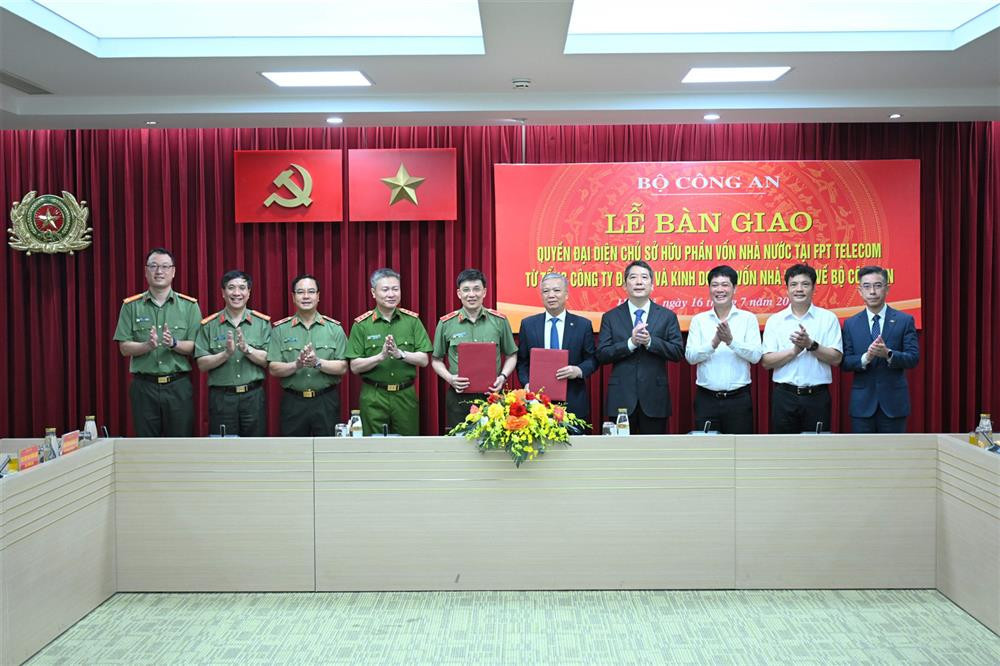On the morning of July 16, the Ministry of Public Security officially took over the role of state capital representative in FPT Telecom from the State Capital Investment Corporation (SCIC).
FPT Telecom is a major telecommunications company with a nationwide fiber optic infrastructure, providing internet, television, and data center services to millions of individual and business users.

This transition follows the broader directive from the Party and the State to restructure and enhance the efficiency of state-owned enterprises.
It aims to strengthen the Ministry’s capacity in safeguarding national security, ensuring social order, and especially securing cyberspace, information networks, and specialized telecommunications in the current context.
This move continues a series of strategic actions by the Ministry, which had previously assumed control of MobiFone and other critical enterprises.
Managing a major telecom provider directly underscores a shift toward ensuring the safety of national digital infrastructure and data sovereignty.
FPT Telecom’s integration into the Ministry could enable deeper oversight of cybersecurity from the ground up - particularly critical as key infrastructure like undersea fiber optic cables, DNS systems, and data centers become frequent targets for international hackers.
With the Ministry of Public Security now overseeing both MobiFone and FPT Telecom, the balance of power in the telecom market is evolving. Viettel and VNPT remain under the Ministry of National Defense and Ministry of Finance, respectively.
Experts anticipate that FPT Telecom will gain substantial support in legal, financial, and strategic terms, positioning the company to participate more actively in priority projects such as network coverage in remote areas, digital infrastructure development, and cyber defense initiatives.
The Ministry has repeatedly emphasized that acquiring such enterprises is aimed at “protecting national interests, digital sovereignty, and citizens' rights.” However, in the era of global integration, cyberspace is no longer just a field to defend - it is also a critical domain for development.
Nguyen Quoc Huy, General Director of SCIC, highlighted the significance of transferring state capital representation in FPT Telecom to the Ministry of Public Security. He described the move as a strategic policy ensuring data and digital sovereignty security in the new era.
He also expressed confidence that the Ministry would continue to leverage its capabilities to support FPT Telecom’s growth and pivotal role in the implementation of Project 06, focused on building a digital government, digital society, and national data platforms.
Thai Khang